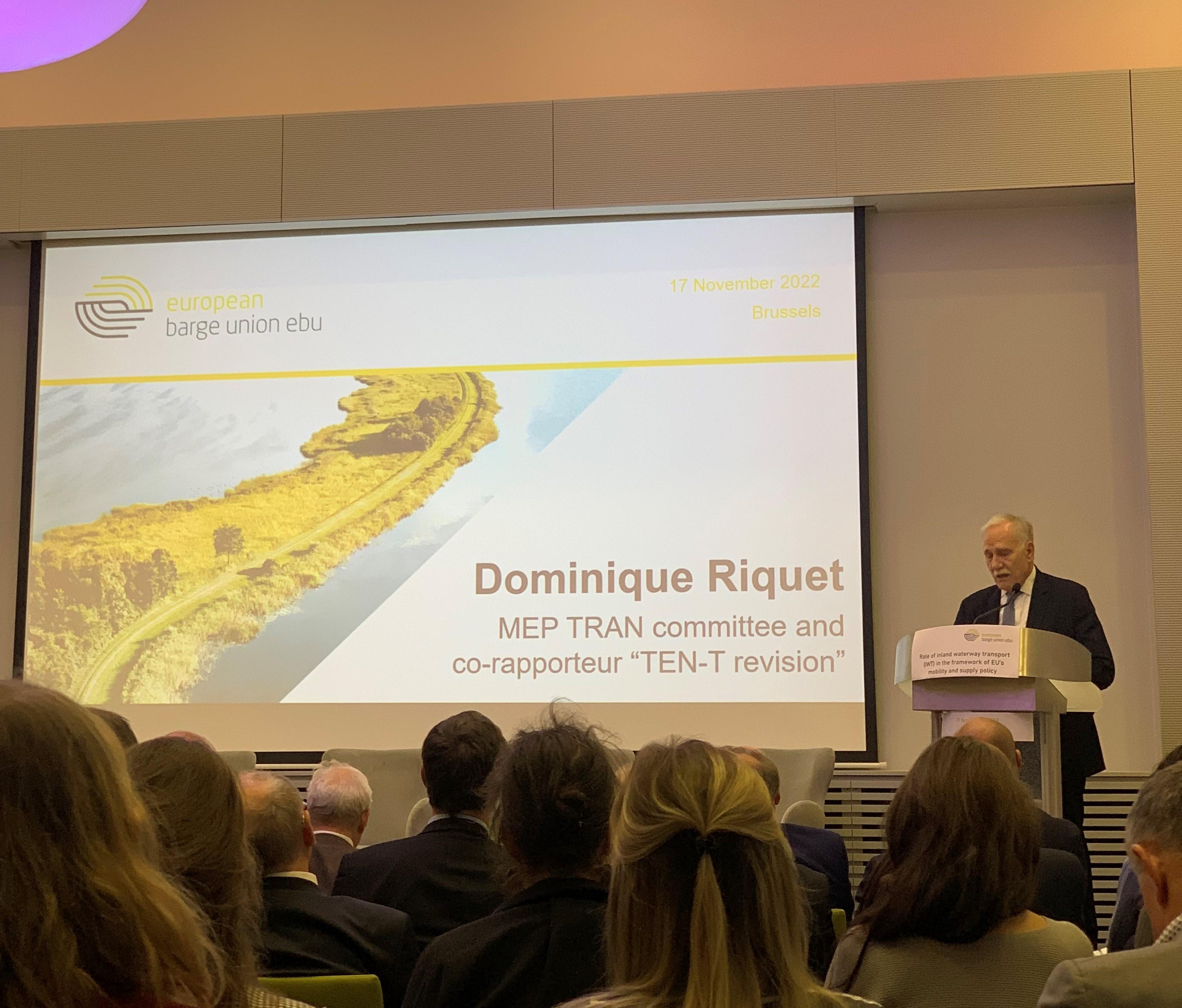Brussels, 17 November 2022

On November 17th, the European Barge Union (EBU) held its annual event. The conference, focused on the role of inland waterway transport (IWT) in the framework of EU’s mobility and supply policy, gathered speakers and panellists from the European and international institutions as well as industry experts.
The Czech Deputy Minister of Transport, Mr. Vaclav Bernard, during his keynote speech stressed the increasing importance of inland waterways transport over the years, especially in relation to its role in decarbonising transport, and recently also in transporting grain and raw materials from Ukraine as part of the Solidarity Lanes.
The IWT role at the heart of the Solidarity Lanes was also emphasised by Mr. Henrik Hololei, Director General of the European Commission’s department for Mobility and Transport (DG MOVE). Furthermore, Mr. Hololei underlined the importance of setting environmental targets to further greening the sector but also the crucial role of digitalisation, that can help improve the existing infrastructure.
As a Member of the TRAN Committee and co-rapporteur for TEN-T revision, MEP Dominque Riquet’s keynote speech addressed the issue of consistency between the different pieces of legislation, pointing to some critical shortcomings and bottlenecks which require specific attention in terms of an increased ambition for governance, maintenance and resilience of infrastructure projects.
Moreover, EBU’s President Philippe Grulois, highlighted the extensive potential of IWT, stating however that “a number of preconditions need to be met to fully materialise the potential of the sector to the benefit of society and economy”. In this regard, Mr. Grulois called for the Commission:
- To let the Consortia Block Exemption Regulation (CBER) expire, since the Commission failed to demonstrate that its extension will actually benefit the sector, and to elaborate instead specific guidelines to ensure transparency and boost EU competitiveness;
- To revise the Combined Transport Directive (CTD) and establish a level playing field regarding support measures and benefits, which currently are granted to the road and rail leg mainly.













